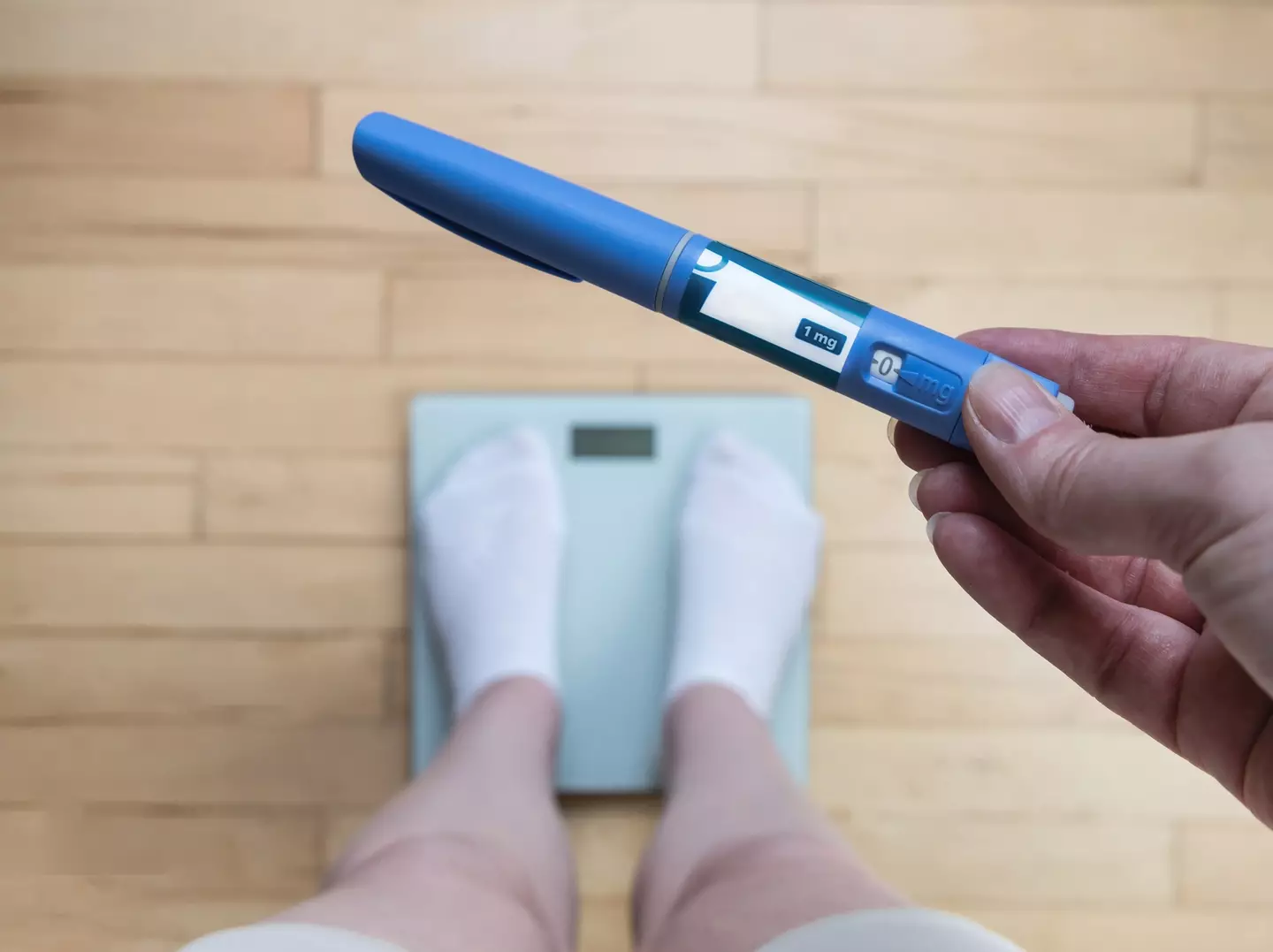Recent research has uncovered how swiftly individuals tend to regain weight after discontinuing weight loss medications.
GLP-1 medications are recognized for their ability to assist in weight reduction by controlling blood sugar and appetite.
Ozempic, a drug within this category, has gained significant popularity. It is specifically designed for individuals with type two diabetes, as noted on its website: “Ozempic is a medicine for adults with type 2 diabetes that, along with diet and exercise, may improve blood sugar.”
The website further clarifies: “While not for weight loss, Ozempic may help you lose some weight.”
In the United States, approximately 12 percent of adults have tried GLP-1 medications, such as Ozempic and Wegovy.
Some individuals may plan to use the medication long-term, depending on the side effects, to achieve their desired weight.
However, a study discovered that most people cease using these injectable drugs around the one-year mark or when their weight loss plateaus. Therefore, even with a positive response, long-term usage is unlikely.

The recent study in BMC Medicine has pinpointed the exact timeframe when individuals begin to regain weight after stopping GLP-1 and similar weight-loss medications, which is a concern for those considering discontinuation.
Researchers Xiaoling Cai, Linong Ji, and their team from Peking University People’s Hospital conducted a worldwide meta-analysis, examining 11 studies on how patients’ weight fluctuated after halting anti-obesity medications (AOMs).
The study analyzed data from 1,574 individuals who were under treatment and 893 in control groups.
Weight regain was assessed by monitoring body weight and BMI post-medication.
Out of the 11 studies, six concentrated on GLP-1 receptor agonists (such as Ozempic and Wegovy), while one examined dual GLP-1/GIP drugs like Mounjaro.

The findings showed that ‘significant’ weight regain commenced eight weeks after ceasing the use of weight-loss drugs.
Participants, on average, gained 1.5 kilograms (3.3 pounds) at this stage.
Weight gain continued to rise until the 20-week mark, where the average increase was 2.5 kilograms (5.5 pounds), after which it began to stabilize.
Despite this, patients still maintained a weight reduction compared to their initial weight.
Even a year after stopping the medication, individuals weighed less than before starting the treatment.
Researchers aim to continue monitoring patients over a longer duration to gain a deeper understanding of what affects weight changes post-treatment, considering factors such as diabetes status, lifestyle habits, and the specific type of weight-loss drug used.
Consequently, while weight regain is possible, discontinuing the medication should not be a source of anxiety.

Novo Nordisk, the manufacturer of Ozempic and Wegovy, reiterated that Ozempic is not meant for weight loss and shared the outcomes of their own trial with UNILAD.
A spokesperson commented: “Results from the STEP trials demonstrate that weight regain is likely once medication is stopped. Clinical experts consulted by Novo Nordisk view obesity as a chronic disease that should be managed similar to long-term health conditions such as diabetes and hypertension.
“These results are in line with other Glucagonlike peptide-1 receptor agonists (GLP-1 RAs) researched for weight loss.
“Eligible patients for Wegovy® use should be referred to specialist weight management services by their GP or local pharmacists. These services provide knowledge, tools, and support for successful, sustainable weight loss with a focus on promoting long-term health and wellbeing. Weight management services typically include teams of dietitians, dietic support workers, clinical psychologists, counsellors, doctors, and nutritionists available to support on the weight loss journey.”

